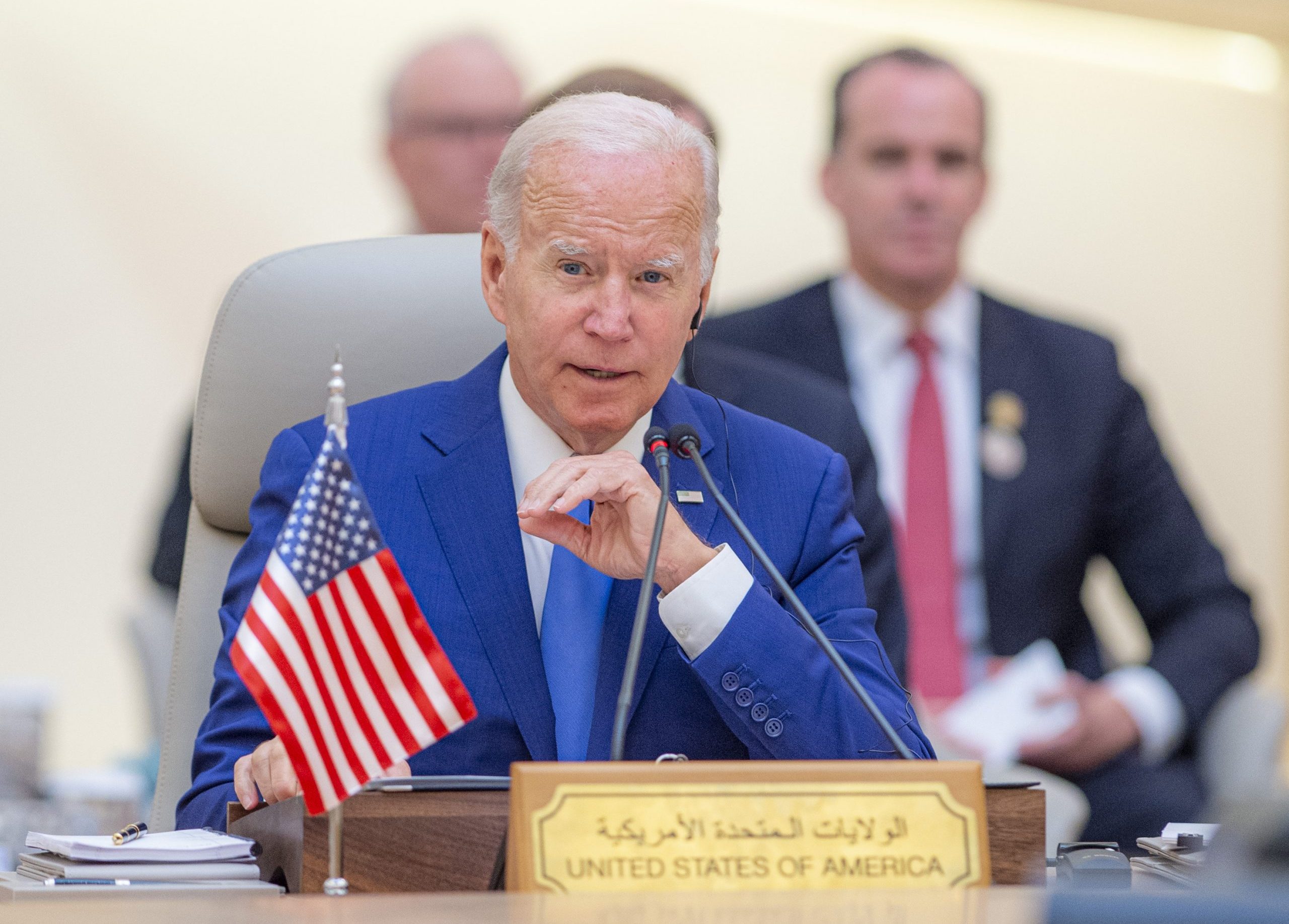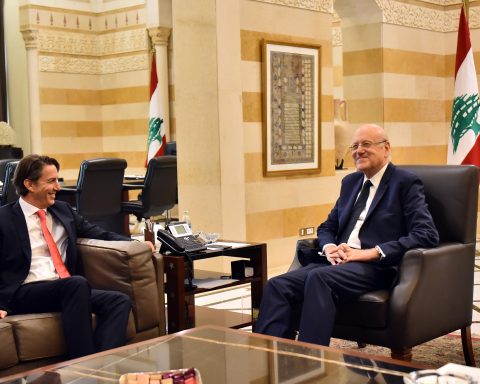US President Joe Biden concluded his Middle East visit, which included stops in Israel, Palestine, and Saudi Arabia, as had been projected for some time. Senior officials and leaders from Gulf Cooperation Council members as well as Egypt, Jordan, and Iraq attended the Jeddah Security and Development Summit on July 16th as part of Biden’s Middle East tour.
As the US president’s first trip to the Middle East, Biden’s trip was significant for both US foreign policy and its Middle Eastern allies. In the midst of claims that the US is exiting the Middle East, Biden traveled there and insisted that the US still has priorities in the Middle East because he wanted to gain certain foreign policy points before the November midterm elections in the US and also in the face of Russia. Regarding Middle Eastern nations, the visit took place at a period when China expanded its political, military, and economic sway in the region; Russia invaded Ukraine, and Iran resumed its nuclear negotiations sporadically and on several platforms.
Highlights of the visit
On his first trip, Biden met with Israeli President Isaac Herzog and new Prime Minister Yair Lapid. Following the visit to Israel, the two nations signed the Jerusalem Declaration, which called attention to Iran’s ambitions to develop nuclear weapons.
Israel and the US once more emphasized the need to prevent Iran from acquiring nuclear weapons. Along with that, Biden viewed Saudi Arabia’s decision to permit commercial planes from Israel to use its airspace as one of the first steps toward potential normalization between the two countries. In addition to all of this, Biden reaffirmed US support for a two-state solution to the Israeli-Palestinian problem and asserted that the Palestinian people deserve their own independent sovereign state.
However, while in Saudi Arabia, Biden also met with Crown Prince Mohammed bin Salman, who has long been chastised by Democratic Party supporters and by Biden himself. The fact that Biden adopted a cold demeanor when he met Mohammed bin Salman contrasts sharply with his earlier sincerity regarding his Arab and Israeli peers. Mohammed bin Salman similarly greeted Biden distantly despite displaying the customary candid photos during his talks with his Arab peers and officials. Following their bilateral discussion, the Saudi Arabian and American delegations decided to withdraw the peacekeeping forces from the disputed Tiran Island and to cooperate on cyber security, energy, food security, the health sector, and the development of air defense capabilities.
The Jeddah Summit
The Jeddah Security and Development Summit that took place on the last day of the US President’s trip to the Middle East was arguably its most significant component. The main outcome of the summit, as implied by the summit’s name, was a consensus between the Arab countries and the US on cooperation in the areas of security, investment, development, and infrastructure. The Arab Coordination Group (ACG) nations have pledged to provide $10 billion to diversify and strengthen the world’s food and supply networks, which have already fatally suffered from the Russian invasion of Ukraine.
Additionally, as part of the US Partnership for Global Infrastructure and Investment (PGII) program, some GCC states have agreed to contribute $3 billion to help middle-income countries in the Middle East with their infrastructure, electricity, and energy problems.
Energy politics was another problem. Since discussions about increasing oil production were already underway with US diplomats like Biden’s Middle East and North Africa Coordinator McGurk and the State Department’s Energy Envoy Hochstein, it is difficult to assert that anything significant has taken place at the summit that would have a critical impact on the oil markets. But we do know that in July and August, Saudi Arabia will increase its oil output by 50 percent more than under the original OPEC Plus deal. There have been worries regarding Saudi Arabia’s ability to produce 13 million barrels of oil a day in the near future, both domestically and globally. There are criticisms and doubts in the context of whether 13 million barrels of oil can be produced daily, and whether it would be successful or sustainable. Therefore, increasing oil production is not an easy decision for Saudi Arabia.
In his statements at the summit and afterwards, Biden emphasized a few key points in his statements at the summit. It was stated that the US would not go anywhere from the Middle East and that Russia, China, and indirectly, Iran would not be left with a vacuum to be filled in the Middle East. In addition, Biden stated that the era of land wars involving US troops has passed, implying that the US military presence in the region may continue, but that there is no serious willingness to engage in new military interventions.
Inferences and evaluations
It would be beneficial to examine this matter in light of US foreign policy philosophy. First and foremost, this discussion also involves US internal politics. Under the former presidents Obama and Trump, and with the current president Biden, this approach of rejecting international commitments has been ardently supported and made use of. Similar to its unwavering backing of Israel, the US has long had a policy of staying out of international commitments and engagements. In actuality, this was part of the US’s foundational principles; dominate and shape developments on the American continent, but participate as little as possible in other regions, such as Europe. Of course, there have been changes in this policy area, especially since the post-1945 period. Discussions over ideologies or strategies of foreign policy such as internationalism, isolationism, and multilateralism have always occurred in this context in the US.
As previously noted, it does not appear that the US can leave a region like the Middle East given the state of international relations at the moment. The US was somewhat obliged to return to the Middle East by the Russian invasion of Ukraine, which came after a development like COVID-19, which increased worldwide inflationary pressure and negatively impacted economies. In addition, the Iranian threat is present. Almost all US allies have strained ties with Iran. One of them is GCC. As a result, we can see that the engagement of countries like Iran, China, and Russia will keep the United States in the Middle East. However, as Biden pointed out, the existence of an American presence in the Middle East does not exclude discussions regarding the scope and significance of that presence. Since Biden also needs to win over those on the inside, there will undoubtedly be variations in the scope and intensity of US involvement in the Middle East. After all, there are institutions, laws, and public opinion in the US, and the president’s ability to decide on foreign policy also depends on getting internal support.
In actuality, the main objective of this tour was to bring the Arab countries together. The key goal has been to make the alliances and partnerships with the US somewhat institutional, or at the very least regular, whether they be against Russia, Iran, or China. Of course, the discussions of forming a NATO consisting of Arab countries continued under Trump, but an Arab NATO has recently been ruled unfeasible again, as the Saudi Foreign Minister, Prince Faisal bin Farhan, indicated. Because, despite the fact that nations desire a situation that functions as a security guarantee, seriously institutionalizing it could pose a greater threat to their own security.














